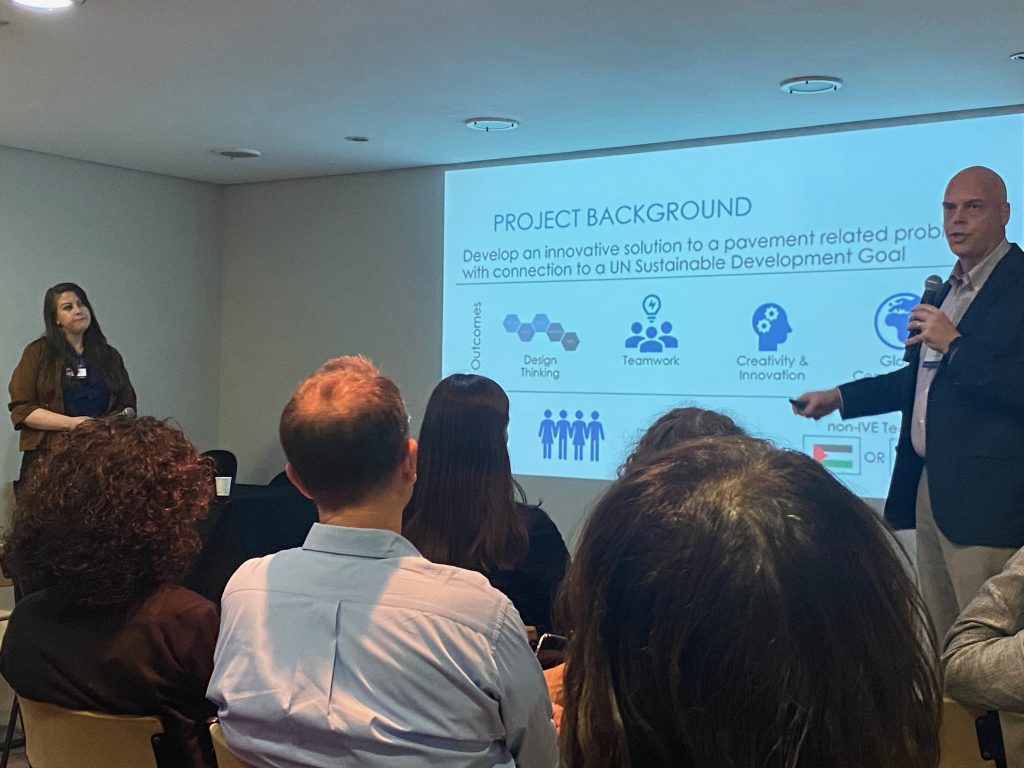International Virtual Exchange (IVE)
In fall 2023 semester, a group of educators at Bucknell, led by Dr. Brad Putman, Dean of Engineering met weekly to discuss the theory and praxis of International Virtual Exchange and Collaborative Online International Learning. Here are some of the highlights of that weekly group meeting, starting with some definitions.
WHAT IS VIRTUAL EXCHANGE?
- Virtual exchanges are technology-enabled, sustained, people-to-people
education programs. While new media technologies are often used for either
superficial social interaction or intensely polarizing political display, virtual
exchanges use the same technologies to build mutually affirming relationships and
foster constructive and meaningful dialogue among youth. (Virtual Exchange
Coalition 2015) - Virtual exchange is a practice, supported by research, that consists of sustained,
technology-enabled, people-to-people education programs or activities in which
constructive communication and interaction takes place between individuals or
groups who are geographically separated and/or from different cultural
backgrounds, with the support of educators or facilitators. Virtual exchange
combines the deep impact of intercultural dialogue and exchange with the broad
reach of digital technology… This type of activity may be situated in educational
programs across the curriculum in order to increase mutual understanding and
global citizenship, as well as in non-formal education projects. (EVOLVE 2018)
WHAT IS COIL?
- COIL utilizes the internet to empower students and instructors around the world to
develop curiosity, flexibility, and generosity in concert with their academic partners.
This benefits two or more classrooms of collaborating students, usually located in
different countries, who have had different life experiences. COIL is also a way for
students and instructors to learn about their discipline from a new perspective and
can be a method for engaging those with other experiences and perspectives
about how this knowledge might be applied. (Rubin 2021)
Bucknell Practitioners
Bucknell is fortunate to have some early adopters of COIL across the institution.
In the College of Engineering, Dean Brad Putman has been working with an-Najah University in Nablus, Palestine for the last three years. Funded through the Stevens Initiative, Putman and his partners focussed the COIL around a problem “Develop an innovative solution to a pavement related problem” and linked the design thinking process to the UN Sustainability Goals. Taught at both his previous institution, Clemson University and now at Bucknell, the course focussed on attaining the student learning goals of design thinking, teamwork, creative problem solving and global competencies. For further information, click here.

Dean Brad Putman and COIL partner Alia Gilbrecht, An-Najah University, Palestine presenting at the 2023 IVE Conference in Sao Paulo, Brazil
In the College of Arts and Sciences, Professor Coralynn Davis has taught a Women’s and Gender studies course as a COIL twice. Entitled “Gender, Power and Global Development” and designated a “Community Engaged Learning” course, the class was linked with community partners in Pune, India through the Study Abroad provider, IFSA.
The class worked with 5 Indian students for synchronous group activities every other week (6 times) who were embedded with community organizations. The Indian students acted as liaisons, e.g., for single mothers, sex workers, oppressed caste communities, girls in STEM, etc. The student activities in the class included exchanges around community issues/organizations/learning. One of the major challenges of a COIL with students in India is the time difference. Therefore, Indian students did not synchronously “attend” class but rather classes were recorded so that they could watch them later.

International Virtual Exchange also lends itself well to language learning. In the Italian Studies program, Professor Bernhard Kuhn has embedded virtual exchange into all levels of the language classes. Behind the integration of this virtual exchange into Italian language proficiency is the theory of cross-cultural competencies, as outlined by Darla Deardorff.

Partnering with students in Rome, intercultural dialogues were built into the syllabus in an asynchronous fashion, allowing students the freedom to choose when they would log on and chat with their Italian counterpart at least twice a semester. Students in the Bucknell classroom found the experience challenging but rewarding, forcing them to assume ther role of the other in a conversation that was held 100% in Italian.
